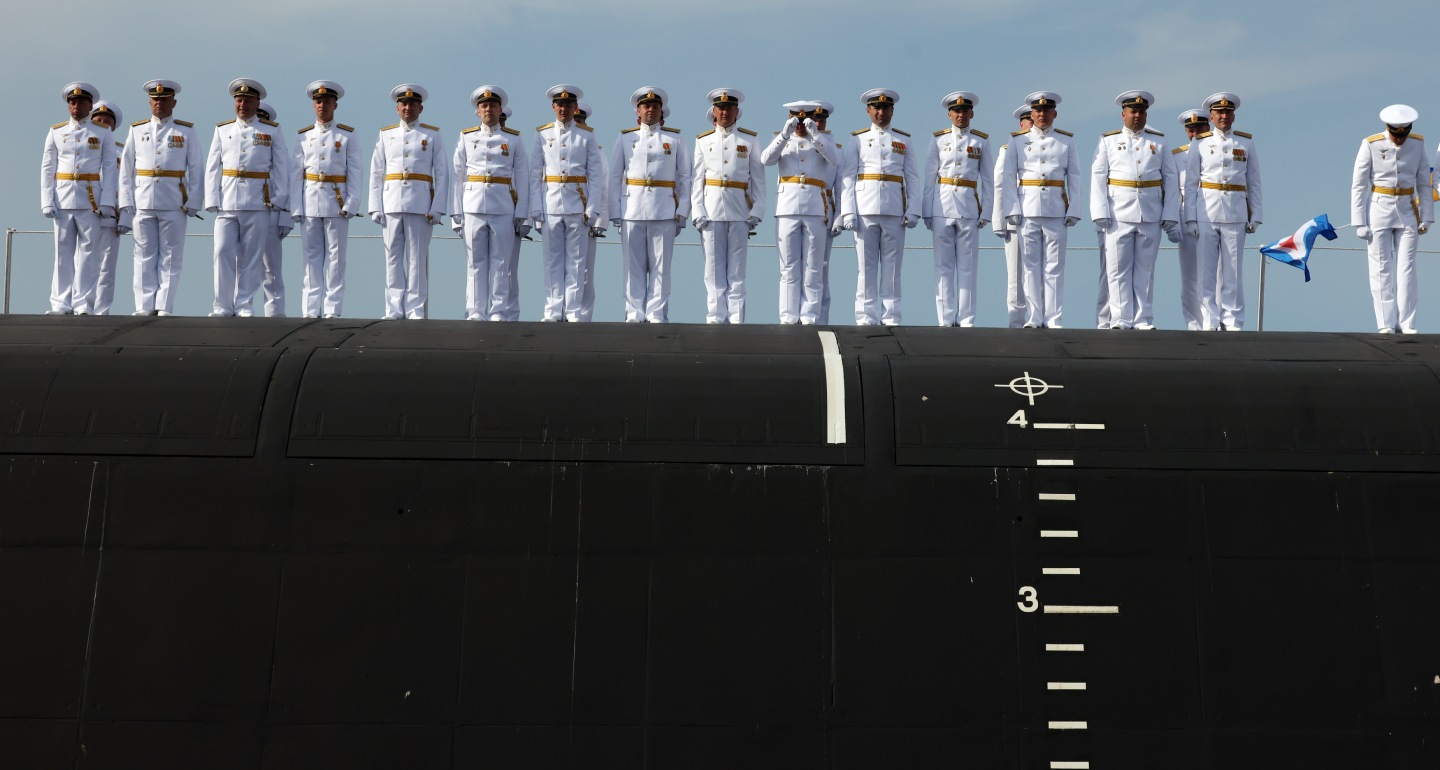U.S. President Donald Trump imposed new sanctions on two major Russian oil companies on October 22 as punishment for Moscow’s lack of engagement with the Ukraine peace process. The sanctions against Rosneft and Lukoil attracted a lot of attention because they are the first to be introduced since Trump returned to the White House. Apart from that, there was little new about the measures. Rosneft and Lukoil are now under broadly the same restrictions as two other major Russian oil companies, Surgutneftegas and Gazprom Neft, which were sanctioned on January 10 by the outgoing administration of Trump’s predecessor, Joe Biden.
Like the sanctions on Rosneft and Lukoil, Biden’s sanctions initially appeared to be a big deal. But they did not dent oil production or export volumes for either company. While overhead costs for the delivery of oil to China and India initially increased, they subsequently returned to pre-sanction levels. Although the bulk of Surgutneftegas and Gazprom Neft’s oil is now exported via shell companies, significant volumes are also shipped openly. Experience would therefore suggest that Rosneft and Lukoil will be able to continue operating in a similar fashion, despite the U.S. restrictions.
In fact, Trump did not have to come up with brand new sanctions to inconvenience Moscow. It would have been enough to simply enforce existing U.S. sanctions, such as the oil price cap. But that would not have had an instantaneous effect—and would have looked like a continuation of Biden-era policymaking.
History shows that hitting Lukoil and Rosneft is unlikely to force Russian President Vladimir Putin to change course when it comes to the war in Ukraine, and will only have a small, temporary effect on Russian oil exports. For Putin, the war is not a pragmatic struggle that only makes sense while the costs are not too great. It is a point of principle, and the symbolic capital he hopes to earn is far more important to him than any resources expended. Accordingly, the Russian leader will continue to fight, despite accumulating economic problems and a long list of lost opportunities.
India and China are unlikely to stop buying Russian oil. Both countries see the Ukraine war as a conflict to which they are not a party, and they value Russia as a supplier of relatively inexpensive crude oil. They are also prepared to stand up for their sovereignty in the face of U.S. pressure. It’s possible that large Chinese and Indian refineries will temporarily feign a willingness to give up Russian oil—but they will resume purchases when Trump’s attention wanders.
If this is what comes to pass, it would mean Russia losing out on a few billion U.S. dollars every year, but little more than that. It’s possible this financial blow might push the Kremlin to spend a bit less on defense, which might help Ukraine. But it is not nearly enough for Putin to start thinking about changing course.
Nevertheless, there will be some short-term impacts. In particular, the sanctions will reduce the volume of Russian oil exports and create problems for Rosneft and Lukoil’s foreign projects. Together, the two Russian oil majors account for about half of Russia’s oil production. Added to the oil produced by already-sanctioned Surgutneftegas and Gazprom Neft, it means that more than 80 percent of Russia’s liquid hydrocarbon production is under U.S. sanctions.
Both Rosneft and Lukoil have business projects abroad. Rosneft has a stake in one of India’s biggest refineries (Nayara Energy), owns 30 percent of Egypt’s offshore Zohr gas project, and—at least on paper—controls a majority stake in Germany’s Schwedt oil refinery (it was taken under German government control following the full-scale invasion of Ukraine). Lukoil has an even bigger foreign presence, with major exploration and production projects in Iraq, Uzbekistan, Congo, and Mexico; stakes in refineries in the Netherlands, Romania, and Bulgaria; gas stations across Europe and in parts of the United States; and a stake in Kazakhstan’s Karachaganak and Tengiz oil fields, as well as the Caspian Pipeline Consortium (CPC) and Azerbaijan’s Shah Deniz gas field.
The new U.S. sanctions only include exemptions for two joint projects with U.S. companies: Tengizchevroil and the CPC. The remaining joint ventures will encounter problems paying dividends, making operational decisions, and working with contractors. Germany has already applied to Washington for an exemption for the Schwedt oil refinery (which is still formally owned by Rosneft). While Berlin’s request is likely to be granted, it’s possible the United States could seek to use the issue to push Europe into a more hardline position on Russian energy. For example, Washington could insist that Germany fully nationalize the refinery: a legally complex task.
The pressing question for international markets is: what will happen to Russian oil exports in the coming months? The answer depends on how zealously the Trump administration approaches enforcement. Will Washington just seek to limit the exports of Rosneft and Lukoil, or will it also redouble its efforts with Surgutneftegas and Gazprom Neft? The most extreme scenario is that international markets lose about 4 million barrels a day of oil, and 1.5 million a day of oil products. Such volumes would be impossible to replace quickly, meaning big price rises.
Other important questions are: what exactly does Trump want? And how much effort is he willing to expend to get it? If his goal is just to send Putin a message that the White House is unhappy about Russia’s attitude toward the Ukraine negotiations, then it might be sufficient to irritate Lukoil and Rosneft by devaluing their assets and increasing their overheads. If, on the other hand, Trump is seriously seeking to remove large volumes of Russian crude from international markets, that risks creating an incentive for Russia to find workarounds, and causing problems for the economies of the United States and its allies—as well as generating anger among voters in the West when prices rise at the pump.
The initial market reaction—the oil price spiked about $5 dollars a barrel in the wake of the sanctions announcement—suggests the former scenario is most likely. If Trump was really in earnest, the price jump would have been more like $30 per barrel. Most analysts seem to believe that there will be some sort of short-term market turbulence as a result of the sanctions on Rosneft and Lukoil, but that ultimately, Russian exports won’t change much.
From past experience, it’s likely India will temporarily reduce its purchases of Russian oil (with the possible exception of Nayara Energy), while China will continue buying at the same rate (although it won’t absorb the volumes not being bought by India). That means Russian oil exports could fall by at least 700,000 barrels a day.
Such volumes, though, are relatively easy to replace. The recent decision by oil cartel OPEC+ to reverse its strategy of output cuts means more oil is currently being produced globally than is being consumed. China is buying up most of the excess and putting it into storage—at the rate of about 1 million barrels a day—meaning it would be easy for international markets to find an additional 700,000 barrels a day. Either China would buy less oil for its reserves, or Saudi Arabia and the United Arab Emirates would ramp up production.
For Russia, reducing its exports by 700,000 barrels of oil per day would mean a 15 percent decrease in foreign currency earnings compared with now, creating problems for both the government and oil companies. In the long term, such sanctions pressure will undoubtedly end up weakening the Russian economy and undermining its ability to withstand a sustained confrontation with the West. However, it also incentivizes the growth of oil markets unconnected to the Western financial system—and accelerates the trend toward de-globalization.











